Enhancing Home Efficiency: A Look at HVAC System Upgrades in Owensboro, KY
The advancement of technology has significantly transformed our homes, making them more comfortable, secure, and efficient. At the heart of this transformation is the HVAC (heating, ventilation, and air conditioning) system. A well-maintained and upgraded HVAC system not only ensures a cozy living environment but also plays a pivotal role in energy conservation.
As the demand for energy-efficient homes increases, understanding how to upgrade your HVAC system is crucial. Whether you're a long-time homeowner considering an HVAC overhaul or a new resident seeking to understand the ropes of HVAC efficiency, this guide is crafted just for you. Get ready to navigate the often daunting world of HVAC system upgrades with confidence and ease.
Energy Efficiency Ratings
One of the most critical factors to consider when upgrading your HVAC system is energy efficiency. Energy efficiency ratings, such as SEER (Seasonal Energy Efficiency Ratio), AFUE (Annual Fuel Utilization Efficiency), and HSPF (Heating Seasonal Performance Factor), serve as essential benchmarks for evaluating the overall performance and cost-effectiveness of various heating and cooling systems:
1. SEER: This rating measures the cooling efficiency of air conditioners and heat pumps. A higher SEER rating indicates better energy efficiency, ultimately leading to lower electricity bills.
2. AFUE: This rating gauges the energy efficiency of furnaces, boilers, and water heaters by measuring the amount of fuel converted to heat. A higher AFUE rating means greater energy savings.
3. HSPF: This rating calculates the heating efficiency of heat pumps. A higher HSPF rating equals better energy efficiency during the heating season, contributing to lower energy consumption and costs.
Selecting the Right HVAC System
To make the most informed decision when upgrading your HVAC system, consider these essential factors:
1. System Size: Proper sizing is paramount for optimal efficiency and comfort. An undersized system may not provide sufficient heating or cooling, while an oversized system can lead to short cycling and increased energy consumption. A professional HVAC contractor can accurately calculate your home's heating and cooling needs, ensuring the right-sized system is installed.
2. System Type: Evaluate the advantages and drawbacks of various heating and cooling options, such as central air conditioning, ductless mini-split systems, heat pumps, furnaces, and boilers. Taking into account your home's unique requirements and your regional climate, a professional HVAC contractor can help determine the most suitable and energy-efficient selection for your needs.
3. Features: Look for energy-saving features and technologies, such as variable-speed and multi-stage heating and cooling capabilities, which optimize system performance and efficiency. Smart thermostats can also contribute to energy savings through customizable schedule settings and remote access.
The Installation Process
The success of your HVAC system upgrade hinges on a professional and well-executed installation process, which should encompass the following critical elements:
1. Proper System Sizing: To ensure optimal efficiency and comfort, your HVAC system must be sized correctly based on your home's specific heating and cooling demands. A professional HVAC contractor will conduct a precise load calculation, taking into account factors such as square footage, insulation, and climate, to determine the appropriate system size for your home.
2. Duct Optimization: The efficiency of your HVAC system is directly impacted by the condition and design of your ductwork. A professional HVAC contractor will inspect your ducts for any leakage, obstructions, or inefficiencies and make any necessary adjustments or repairs during the installation process.
3. Code Compliance: A successful installation must adhere to all local building codes and regulations to ensure optimal performance and safety. Trust in a professional HVAC contractor to navigate these regulations and deliver a compliant installation.
The Benefits of Professional Guidance
Relying on the expert counsel and services provided by the team at Key Heating & Cooling is invaluable for a seamless and rewarding HVAC system upgrade experience:
1. Expert Consultation: Our knowledgeable professionals can assess your home's unique needs and local climate to provide personalized recommendations and guidance on the most energy-efficient and effective HVAC system upgrades.
2. Comprehensive Assessment: Our experienced technicians will conduct a thorough evaluation of your existing system and ductwork, identifying any inefficiencies, necessary repairs, or potential enhancements to ensure the success of your upgrade.
3. Quality Installation: Trust our skilled professionals to oversee the entire installation process, from proper system sizing to duct optimization and adherence to code requirements, guaranteeing top-quality results.
4. Ongoing Support and Maintenance: Partner with Key Heating & Cooling for ongoing maintenance, system optimizations, and support to keep your new HVAC system operating at peak efficiency and extending its lifespan.
Boosting Your Home's Energy Efficiency with HVAC System Upgrades
In essence, upgrading HVAC systems is a strategic decision that requires careful consideration and planning. It's not just about choosing the most advanced or expensive system, but about finding a solution that aligns with the unique needs and circumstances of the home. It may require an initial investment, but the long-term savings and benefits make it a worthwhile endeavor.
Trust in the expertise and exceptional support of Key Heating & Cooling to navigate the world of
HVAC system upgrades in Owensboro, KY, and experience the enhanced comfort and efficiency that a modernized system can bring to your home.
All Rights Reserved | Website Designed And Developed By Oddball Creative

